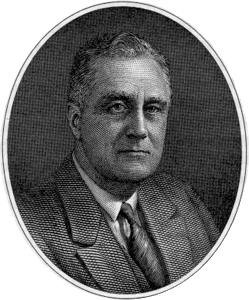by Real_PHV_Mentarch | 8/31/2008 01:17:00 PM
Last year, I wrote the following concerning President G.W. Bush and his seeming never-ending quest for absolute dictatorial powers (emphasis added):
Let us fast-forward to today and focus on the following recent news items:Now read this news item (emphasis and extra links added):
A) President G.W. Bush considers himself not just the Commander-in-Chief , the Decider and the Decision-Maker anymore, but also simply the Commander Guy;
B) The Bush administration has stipulated that the president had the constitutional authority to decide for himself whether to conduct surveillance without warrants and therefore does not need the consent of Congress to do so;
C) This is in line with the fact that President G.W. Bush has brushed aside hundreds of laws already with his signing statements;
D) Congress has already put in the books the Patriot Act and the Military Commission’s Act, both giving the President the power to deal effectively with America’s enemies (powers which include looser surveillance restrictions, indefinite detentions, use of torture, loss of habeas corpus, etc.);
E) President G.W. Bush, in defense of his veto of an Iraq war spending plan passed by the Democratic-led Congress that would have forced him to begin pulling U.S. troops out of Iraq, sent the message to Congress that he considered the legislation unconstitutional because it infringed on his presidential powers;
and F) Meanwhile, cries continue to clamor for the need of a Unitary Executive, of a strong and powerful leader who must be above the quaint laws of the republic, because "in stormy times, the rule of law may seem to require the prudence and force that law, or present law, cannot supply, and the executive must be strong".
With these items in mind, go read the U.S. Constitution (especially Articles I-III which define the powers of the three equal branches).
One does not need be a Constitutional lawyer or expert to understand that, especially with regards to item E), President Bush is essentially claiming that the constitutional roles and powers of the Congress are unconstitutional.
In short: the President now stands above the Rule of Constitutional Law - particularly in times of crisis presented by external (re: global terrorism) or internal (re: home-grown terrorism) threats.
History clearly shows that such points of view and radical interpretations of the separation of powers within a republic, along with the slow erosion of the rule of law and the clamor for a single strong and powerful leader in times of crisis, have lead to the downfall and de facto end of the Roman republic.
Has President George W. Bush effectively "crossed the Rubicon"?
Do these days represent the critical period which will lead eventually to the end of the American republic?
(...) President Bush has quietly moved to expand the reach of presidential power by ensuring that America remains in a state of permanent war.And let us not forget about torture and other "necessary" actions required to "fight" this now-official, never-ending Global War on Terrorism(TM).
Buried in a recent proposal by the Administration is a sentence that has received scant attention -- and was buried itself in the very newspaper that exposed it Saturday. It is an affirmation that the United States remains at war with al Qaeda, the Taliban and "associated organizations."
Part of a proposal for Guantanamo Bay legal detainees, the provision before Congress seeks to “acknowledge again and explicitly that this nation remains engaged in an armed conflict with Al Qaeda, the Taliban, and associated organizations, who have already proclaimed themselves at war with us and who are dedicated to the slaughter of Americans.”
The New York Times' page 8 placement of the article in its Saturday edition seems to downplay its importance. Such a re-affirmation of war carries broad legal implications that could imperil Americans' civil liberties and the rights of foreign nationals for decades to come.
It was under the guise of war that President Bush claimed a legal mandate for his warrantless wiretapping program, giving the National Security Agency power to intercept calls Americans made abroad. More of this program has emerged in recent years, and it includes the surveillance of Americans' information and exchanges online.
"War powers" have also given President Bush cover to hold Americans without habeas corpus (...)
Times reporter Eric Lichtblau notes that the measure is the latest step that the Administration has taken to "make permanent" key aspects of its "long war" against terrorism. Congress recently passed a much-maligned bill giving telecommunications companies retroactive immunity for their participation in what constitutional experts see as an illegal or borderline-illegal surveillance program, and is considering efforts to give the FBI more power in their investigative techniques.
"It is uncertain whether Congress will take the administration up on its request," Lichtblau writes. "Some Republicans have already embraced the idea, with Representative Lamar Smith of Texas, the ranking Republican on the Judiciary Committee, introducing a measure almost identical to the administration’s proposal. 'Since 9/11,' Mr. Smith said, 'we have been at war with an unconventional enemy whose primary goal is to kill innocent Americans.'"
If enough Republicans come aboard, Democrats may struggle to defeat the provision. Despite holding majorities in the House and Senate, they have failed to beat back some of President Bush's purported "security" measures, such as the telecom immunity bill.
Bush's open-ended permanent war language worries his critics. They say it could provide indefinite, if hazy, legal justification for any number of activities -- including detention of terrorists suspects at bases like Guantanamo Bay (where for years the Administration would not even release the names of those being held), and the NSA's warantless wiretapping program.
Lichtblau co-wrote the Times article revealing the Administration's eavesdropping program along with fellow reporter James Risen.
He notes that Bush's language "recalls a resolution, known as the Authorization for Use of Military Force, passed by Congress on Sept. 14, 2001... [which] authorized the president to 'use all necessary and appropriate force' against those responsible for the Sept. 11 attacks to prevent future strikes. That authorization, still in effect, was initially viewed by many members of Congress who voted for it as the go-ahead for the administration to invade Afghanistan and overthrow the Taliban, which had given sanctuary to Mr. bin Laden."
"But the military authorization became the secret legal basis for some of the administration’s most controversial legal tactics, including the wiretapping program, and that still gnaws at some members of Congress," he adds.
Once again, we should keep very much in mind the ever convenient rationale of security agencies as they perform their "duty":
(...) This means that anything can and will be viewed by our security agencies within the narrow, paranoid prism of terrorism and threats to security.Conclusion - no one is safe indeed:
Anything.
From blogging to writing a dissenting letter to a newspaper editor to a journalist trying to do investigative work to gathering at a coffee shop to rant about politics to reading "suspicious" stuff (books, blogs) to organizing/participating in activist actions (letter/phone/email campaigns, peaceful protests), etc., etc., etc.
Because any such activities may or may not - immediately or at some point in time or never at all - lead to acts which may or may not "threaten the safety and security of citizens or the integrity of the country's critical infrastructure".
So just in case and to be safe, let's monitor and survey and spy away on the citizenry.
And that is the ever convenient rationale of authoritarian security states for spying on their citizens.
It is a given, demonstrated fact that governmental security agencies are not seekers of truth, but seekers of guilt. Whenever they are given any powers to spy on their own citizens, they will do so - for reasons frivolous, paranoid or (apparently very rarely as shown so far) actually justified.Welcome to the Security State governed by the all-powerful President-Pontificate, who will win (someday in the far, distant future, perhaps) the never-ending Global War on Terror(TM).
Anything and nothing can - and will - be held against you.
Because in the mindset of governmental security agencies, everyone is suspect, everyone is guilty. Period.
The last, final few steps in crossing the Rubicon are being be taken.
Should he be still alive today, I am convinced that George Orwell would say: "I told you so".
Thus the slow march toward tyranny is nearing its completion.
Any questions?
(Cross-posted from APOV)
Labels: {URL}, Bush, civil liberties, constitution, democracy, domestic spying, freedom, indefinite detentions, injustice, Mentarch, military commissions, security, Torture, tyranny, War on Terror





 The most remarkable part of the remarkable speech Barack Obama delivered in Denver last night was that he truly offered a real possibility of cutting the Gordian Knot that has become Washington politics. For decades now, not matter what the issue both sides have dug in and waged protracted trench warfare. That is why I refer to our current period as the era of Bad Feelings.
The most remarkable part of the remarkable speech Barack Obama delivered in Denver last night was that he truly offered a real possibility of cutting the Gordian Knot that has become Washington politics. For decades now, not matter what the issue both sides have dug in and waged protracted trench warfare. That is why I refer to our current period as the era of Bad Feelings.

